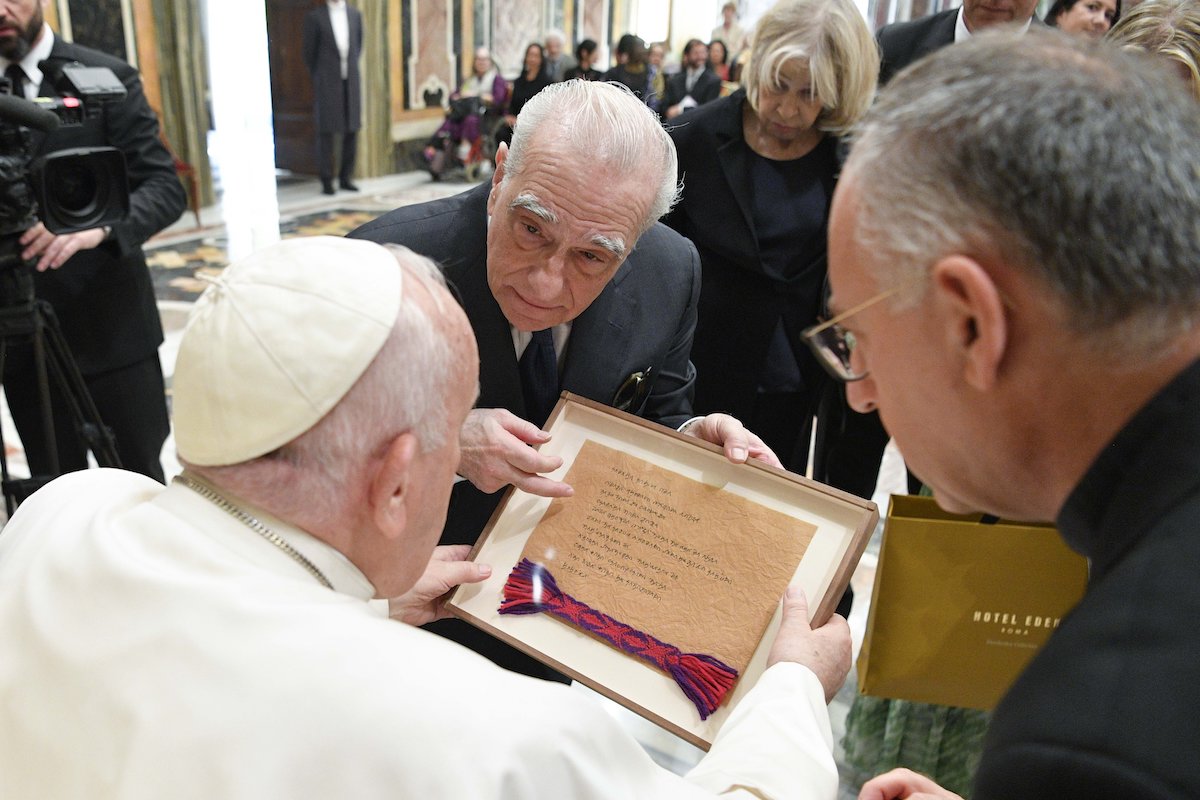By Cindy Wooden, Catholic News Service
VATICAN CITY (CNS) — Catholic artists, poets, writers and filmmakers serve the church not by trying to “domesticate” Christ but by helping people challenge and expand their knowledge of the Lord, Pope Francis said.
Meeting May 27 with more than 40 creative Catholics, including director Martin Scorsese, the pope called on Catholic artists to help “open wide our imagination so that it can transcend our narrow perspectives and be open to the holy mystery of God.”
The papal audience came at the end of a two-day conference in Rome, “The Global Aesthetics of the Catholic Imagination,” sponsored by the Italian Jesuit journal La Civiltà Cattolica and by Georgetown University in Washington.
Pope Francis told the attendees, “I have loved many poets and writers in my life, among whom I think especially of Dante, Dostoevsky and others still.”
“The words of those authors helped me to understand myself, the world and my people, but also to understand more profoundly the human heart, my personal life of faith and my pastoral work, even now in my present ministry,” he said.
Pope Francis asked the artists “not to ‘explain’ the mystery of Christ, which is ultimately unfathomable, but to enable us to touch him, to feel his closeness, to let us see him as alive and to open our eyes to the beauty of his promises. Because his promises appeal to our imagination: they help us to imagine in a new way our lives, our history and the future of humanity.”
“Continue to dream, to be restless, to conjure up words and visions that can help us interpret the mystery of human life and guide our societies toward beauty and universal fraternity,” he said.
Every human being, he said, experiences restlessness in their soul, and while many try to ignore it or “domesticate” it, just like they try to domesticate Jesus, doing so cuts them off from a deeper reflection and exploration.
The pope asked the artists “to go beyond set bounds, to be creative without downplaying your own spiritual restlessness and that of humanity.”
“Always embrace, poetically, the anxious yearnings present in the human heart, lest they grow cold and fade away,” he said. “Doing so enables the Spirit to act, to create harmony within the tensions and contradictions of life, to nurture our passion for goodness and to foster the growth of beauty in all its forms, that beauty which finds privileged expression in the arts.”






